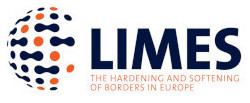EU’s Shifting Borders- Scrutinizing Externalization of Migration Management and International Protection Responsibilities
Research Focus and Methodology
Andreina’s thesis deals with EU cooperation with third countries in the field of migration. She focuses on the legal issues relating to the provision of EU emergency external aid for border management projects in third countries. More specifically, she analyzes three main problems: a) is the use of development aid to prevent irregular migration in line with the objectives and principles of EU development cooperation law?; b) is EU migration cooperation with third countries that commits systematic violations of fundamental rights consistent with binding fundamental rights norms?; and c) is there sufficient democratic oversight of the management of EU funds, given the limited role of the European Parliament in the scrutiny of emergency funds? She also assesses the availability of judicial and non-judicial mechanisms at the EU level to contest the manner in which EU funds are allocated in this area. She employs a multidisciplinary approach, combining desk-based research with semi-structured interviews with EU officials who manage EU funds or control how they are spent, with practitioners, and NGOs.
Relation to Borders
The overarching topic of ‘borders’ is very much present in Andreina’s research. As she examines the European Union’s border management and cooperation with third countries to prevent protection seekers to enter EU territory, she deals with how EU border controls are ‘shifted’ beyond the EU territory to obstruct mobility, and the resulting accountability gaps of this phenomenon.
Findings and Takeaways
Andreina’s desk-based research shows that EU money is not necessarily used in an unlawful manner even if there is substantial evidence of serious violations of fundamental rights by border authorities in third countries that are benefitting from EU assistance. Demonstrating breaches of the norms regulating EU development cooperation policy or the competences of the European Parliament in the management of EU funds is likewise not a simple task. On top of this, there are limited possibilities of bringing cases to the attention of the European Court of Justice, given the strict criteria for applicants to access the Court. While non-judicial remedies may offer a more promising avenue, their non-binding character could make them less effective in bringing about change. Overall, it seems that a clearer legal framework is needed to ensure that EU money is spent in accordance with EU founding values and principles.
Researcher: Andreina De Leo (see profile)
Supervisors: Mariolina Eliantonio, Andrea Ott, Lilian Tsourdi, Alberto-Horst Neidhardt (see profiles)
